When it comes to leasing agreements, sometimes changes are necessary to better suit both parties involved. Whether it's a modification in rent terms, lease duration, or specific property rules, a lease amendment allows for a smooth transition. In this article, we'll explore the steps for drafting a lease amendment mutual agreement that is clear and fair to everyone. So, if you're ready to learn how to navigate this important process, read on for more valuable insights!
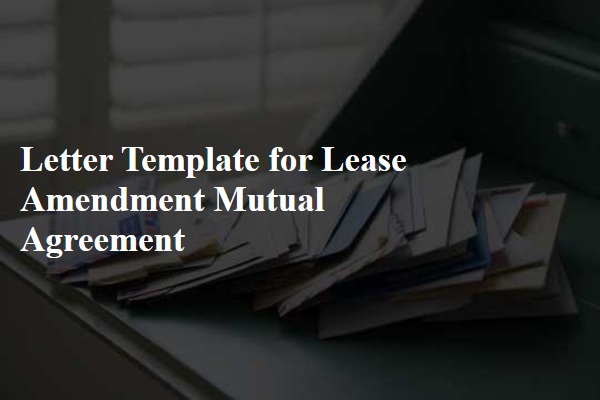
Parties Involved
A lease amendment mutual agreement outlines key changes between parties involved in a rental contract. Landlord, often a real estate entity or individual property owner, agrees to revised terms, impacting rental conditions. Tenant, a resident or business occupying a property, also consents to these modifications, such as rent amount or lease duration. The agreement specifies effective date, ensuring clarity on when adjustments are enacted. Both parties reaffirm rights and obligations under the updated lease, maintaining legal protections. Essential details include property address, original lease date, and signatures of all parties, reinforcing commitment to new terms.
Property Details
A lease amendment mutual agreement document outlines specific changes to a rental contract related to property details. This document typically includes essential information such as the property's physical address at 123 Maple Street, Springfield, along with details about the current lease terms, including the original lease duration of 12 months starting from January 1, 2023. Additionally, it may specify changes such as adjustments to rent amounts, payment due dates, pet policies, or responsibilities for maintenance and repairs. Clearly defined clauses help clarify mutual consent, ensuring that both the landlord and tenant understand their rights and obligations relating to the amended terms of the lease agreement.
Amendment Terms
A lease amendment mutual agreement outlines the specific changes to a lease contract, typically involving terms like rent, duration, or responsibilities. In cases where the rental amount is adjusted, it is common to specify the new monthly payment, effective date, and any adjustments to utilities or fees. Changes in the lease duration may necessitate a clear start and end date, with implications for renewal options. Responsibilities regarding maintenance and repairs should be detailed, indicating which party is accountable for specific tasks. Each party's consent is essential, often requiring signatures and dates for validation, along with any notary requirements depending on the jurisdiction in which the lease is executed.
Effective Date
A lease amendment mutual agreement is a formal document that outlines changes to an existing lease contract, ensuring that both parties (landlord and tenant) consent to the new terms. Key details include the effective date, which marks when the amendments officially come into force, and the specific changes being made, such as rent adjustments, lease duration extensions, or modifications to property use. It is crucial to include precise references to the original lease agreement dated (insert original lease date) and to have both parties sign and date the amendment to validate the agreement. Notable cities with active real estate markets, such as New York City or San Francisco, often require such amendments for transparency and legal compliance.
Signatures and Date
A lease amendment mutual agreement outlines specific changes to the original lease terms between tenants and landlords, ensuring both parties consent. Key elements include effective date, detailed amendments specifying changes such as rent adjustments or extended lease duration, and responsibilities for property maintenance. It is crucial to include both parties' full names, addresses, and signatures for legal validation. Locations should reflect the property address, clearly indicating where the lease applies. Proper documentation fosters transparency and protects the rights of all involved, necessitating a witness signature to mitigate disputes.

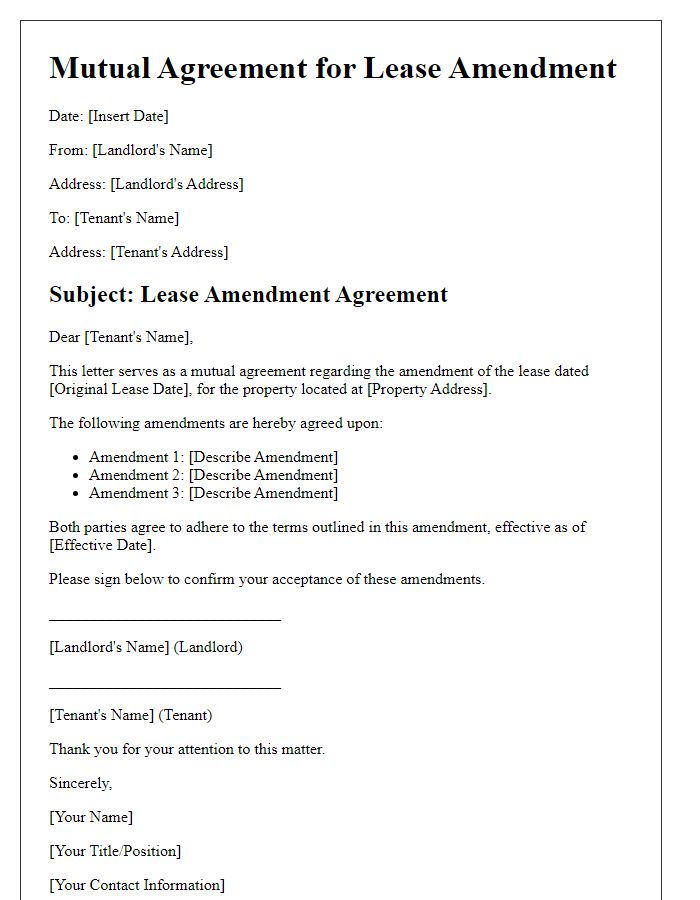
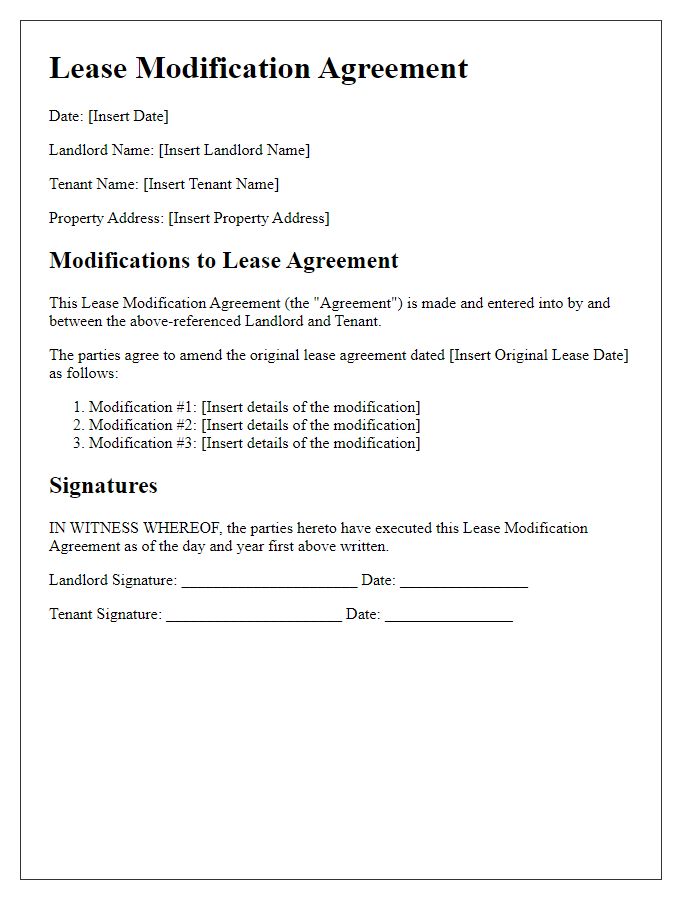
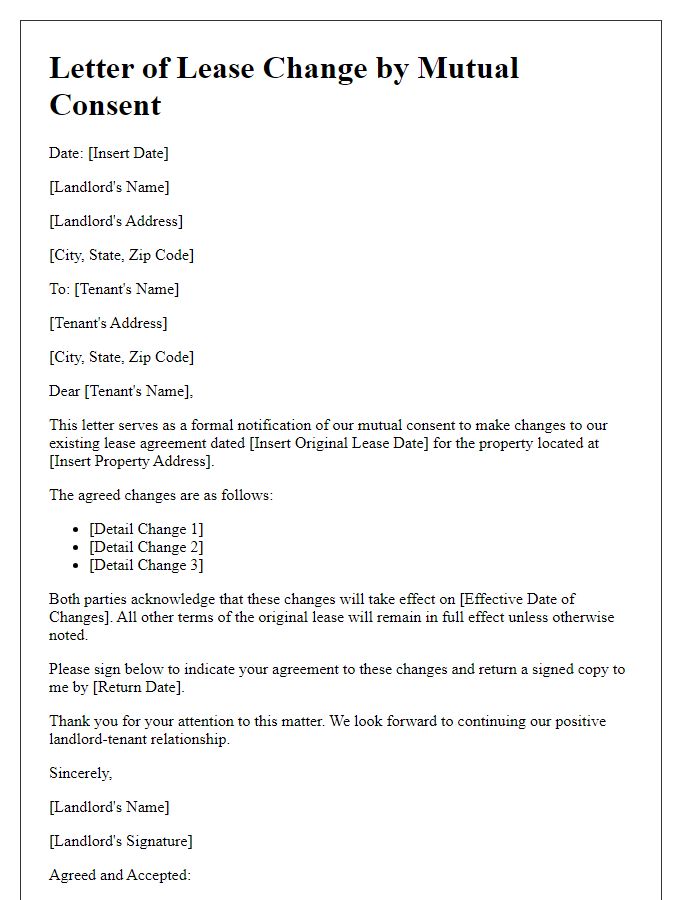
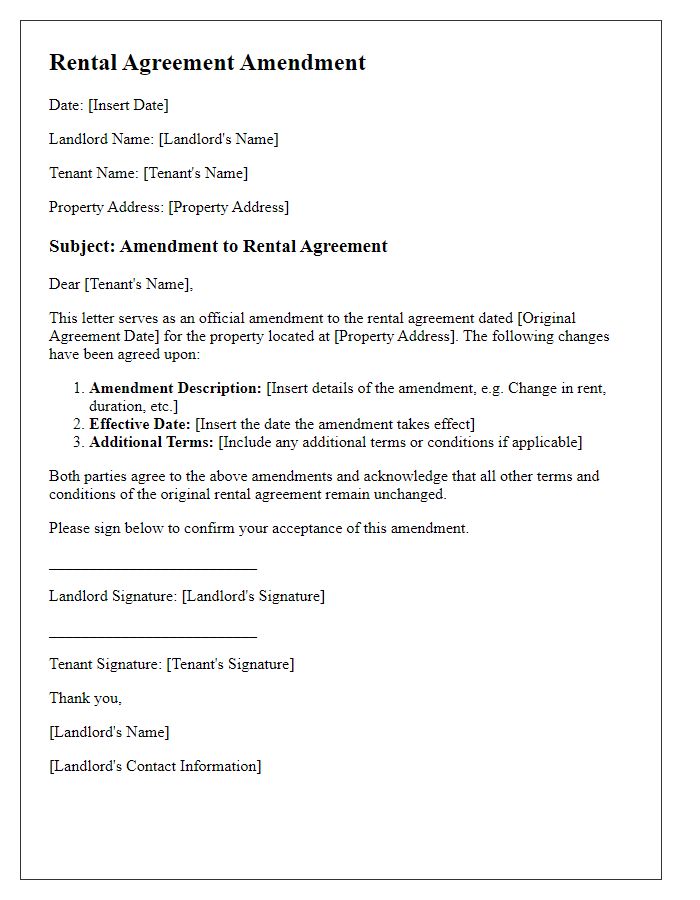
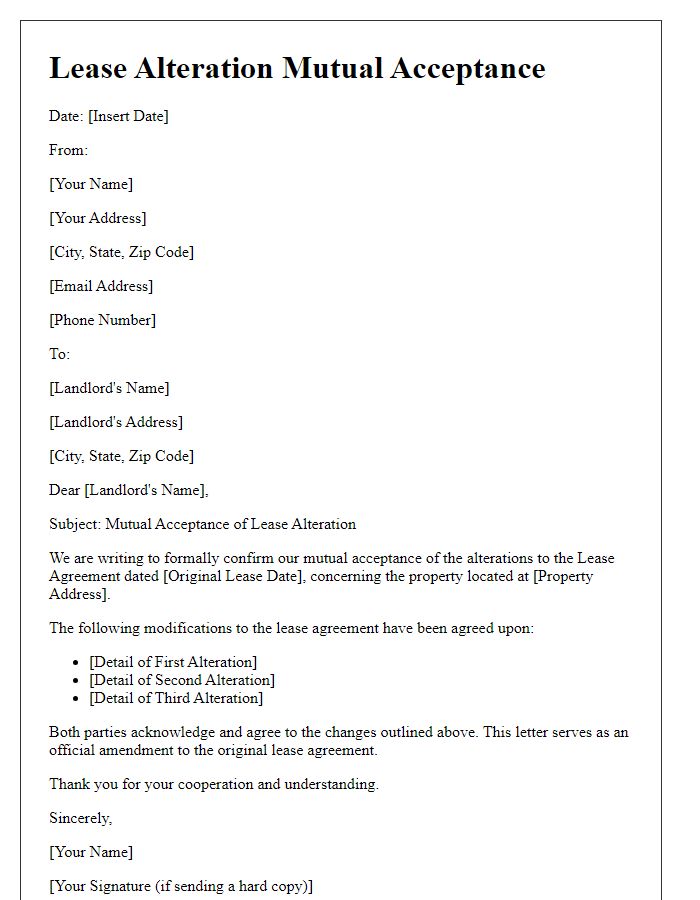
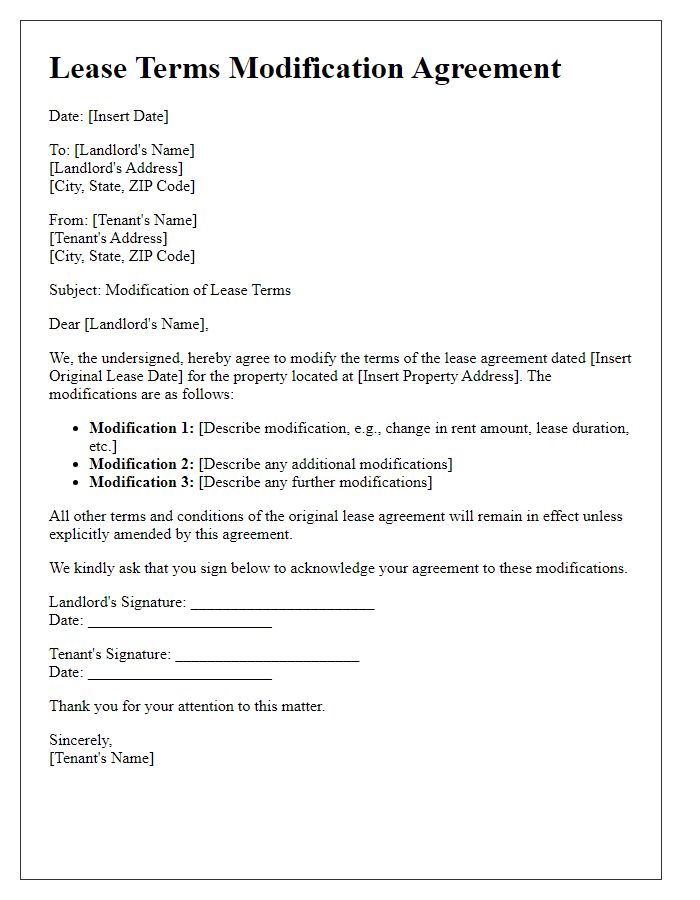
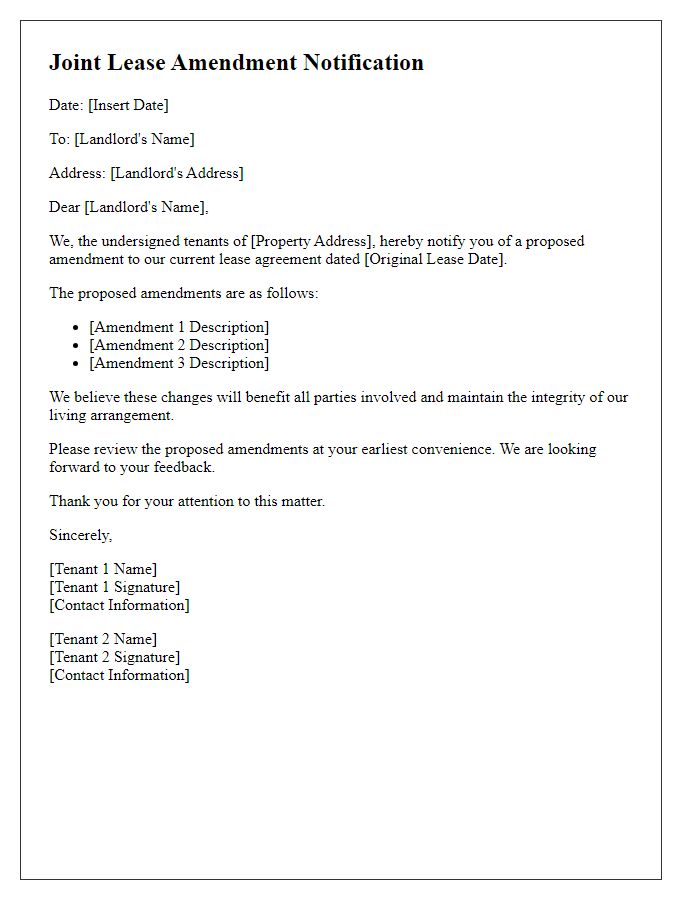
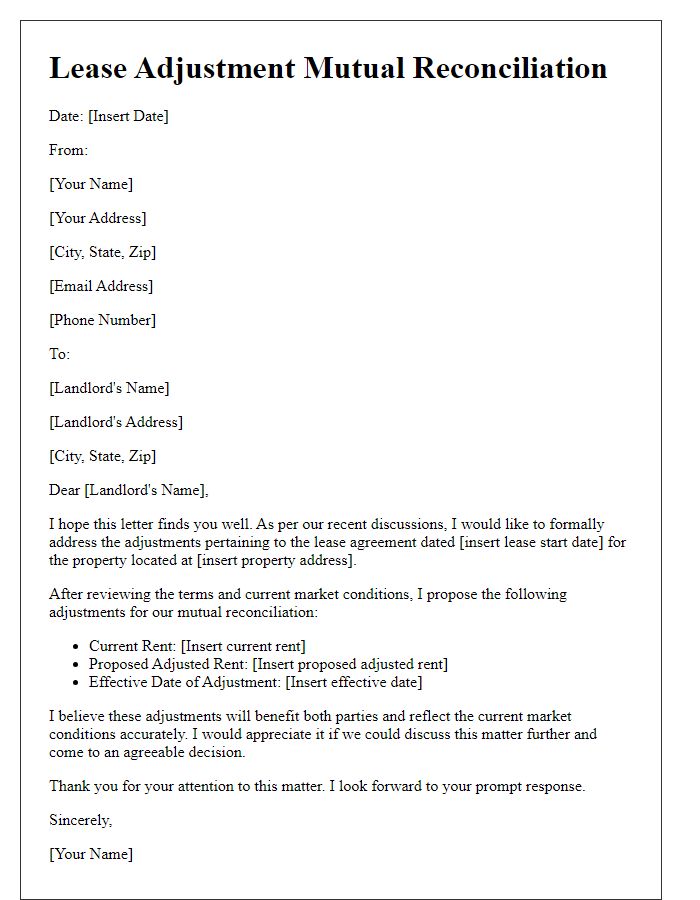
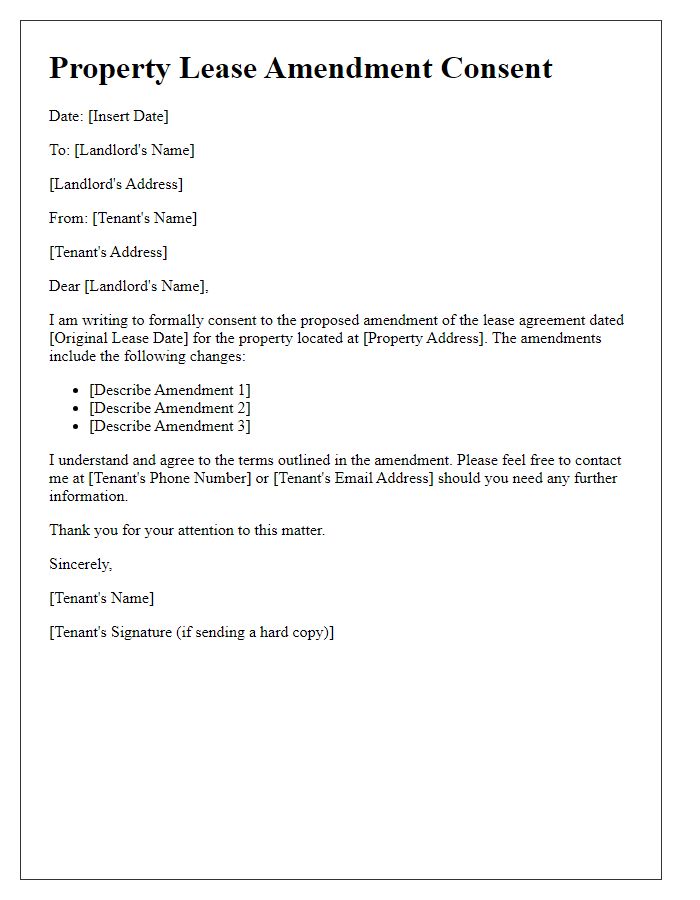
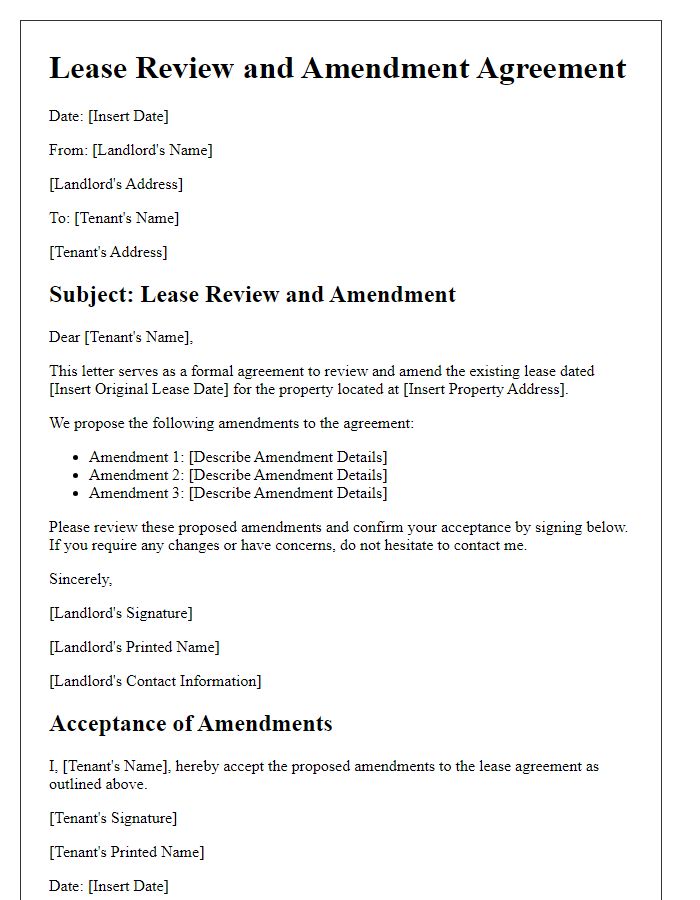

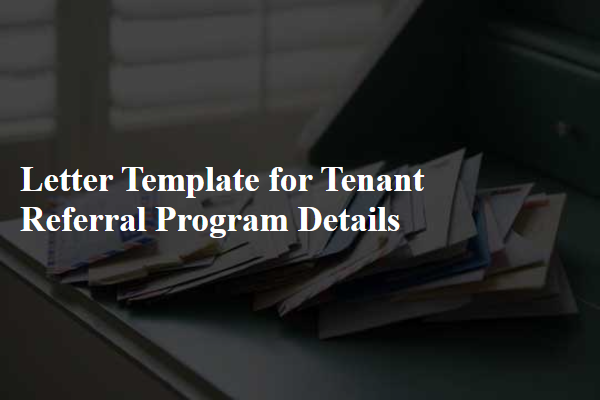
Comments